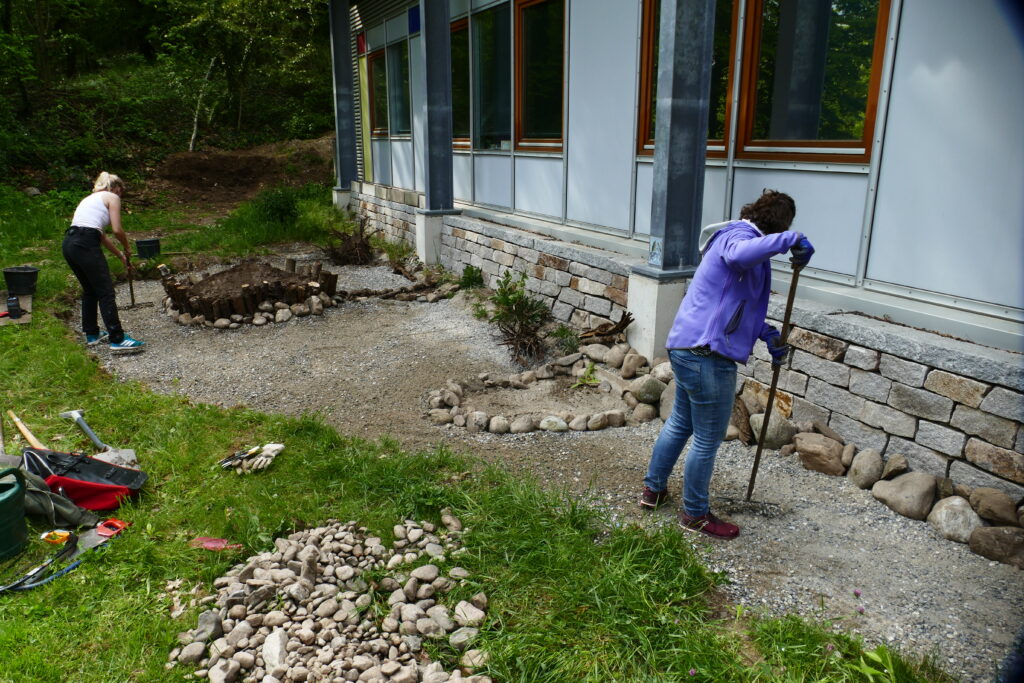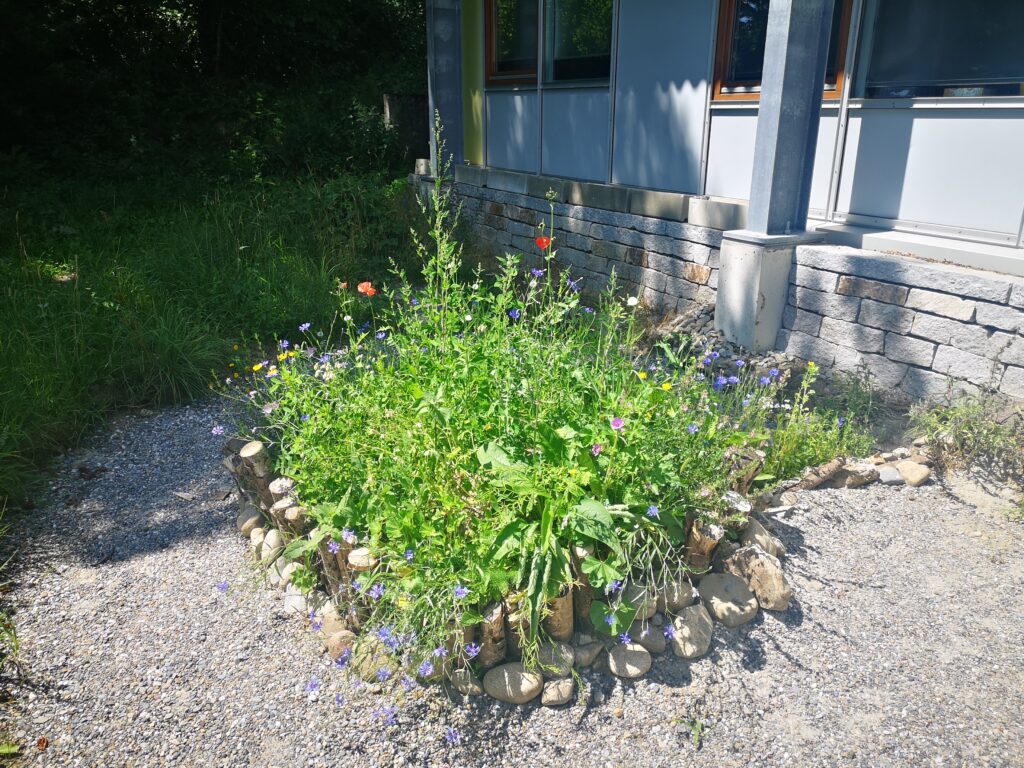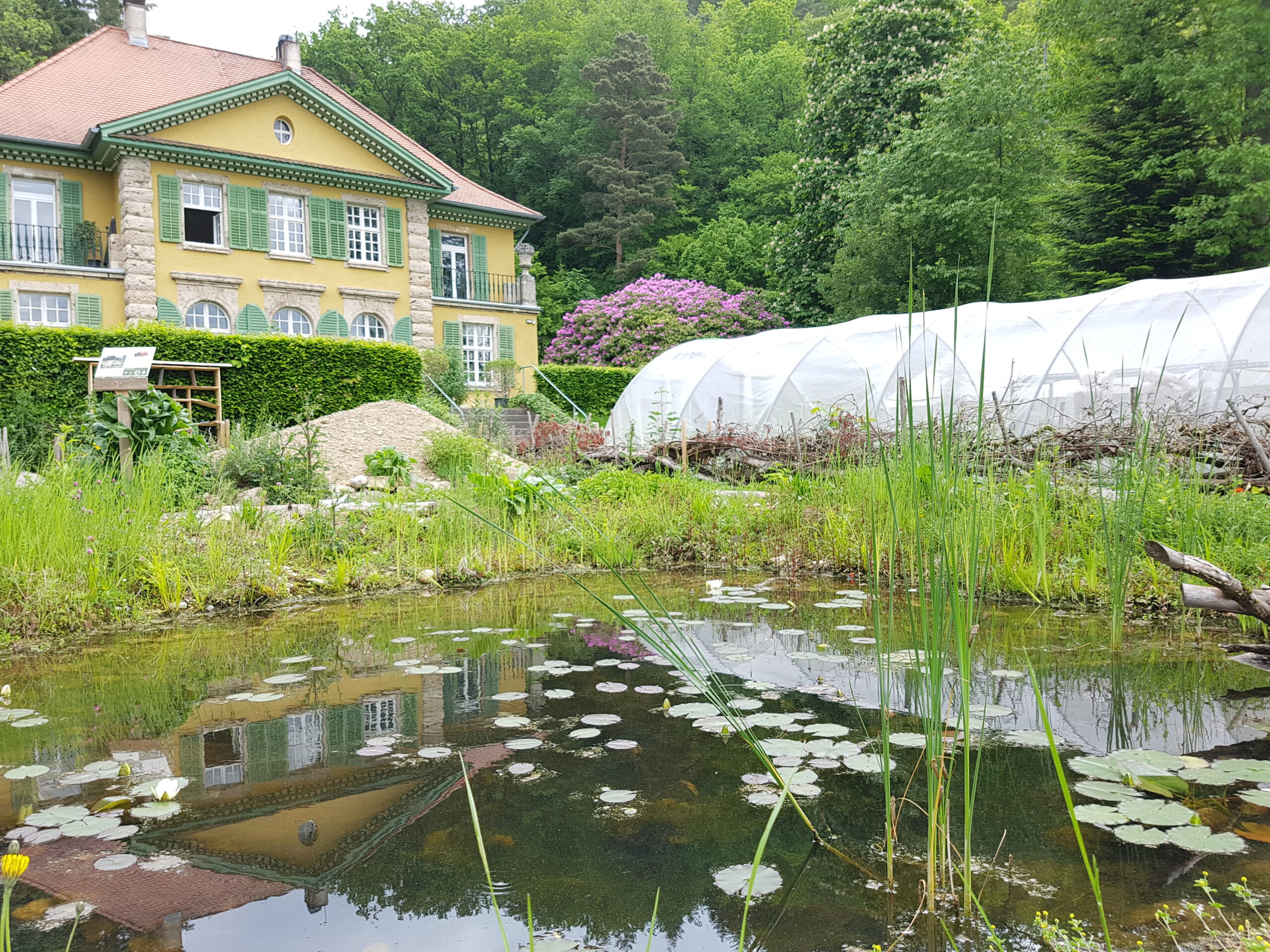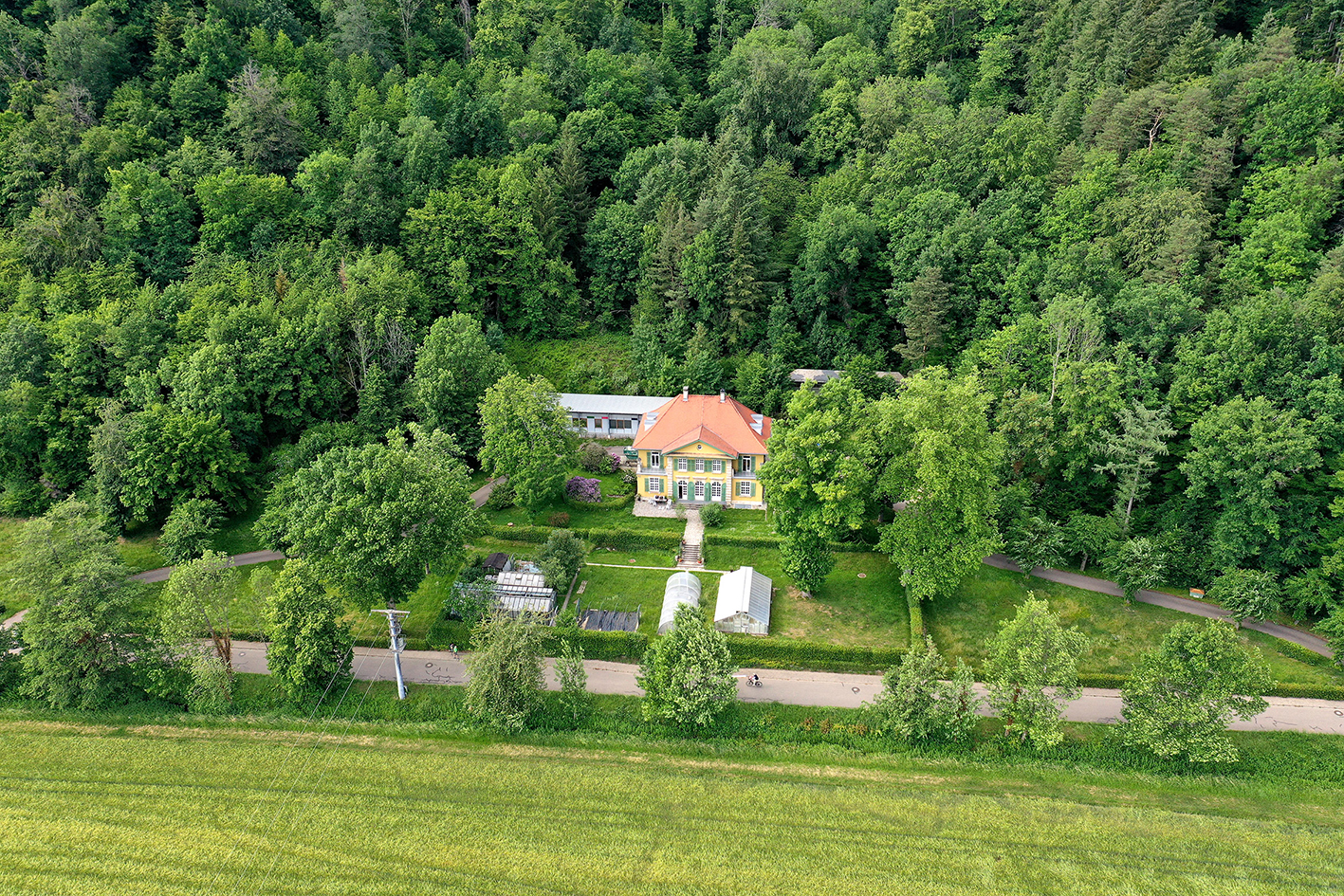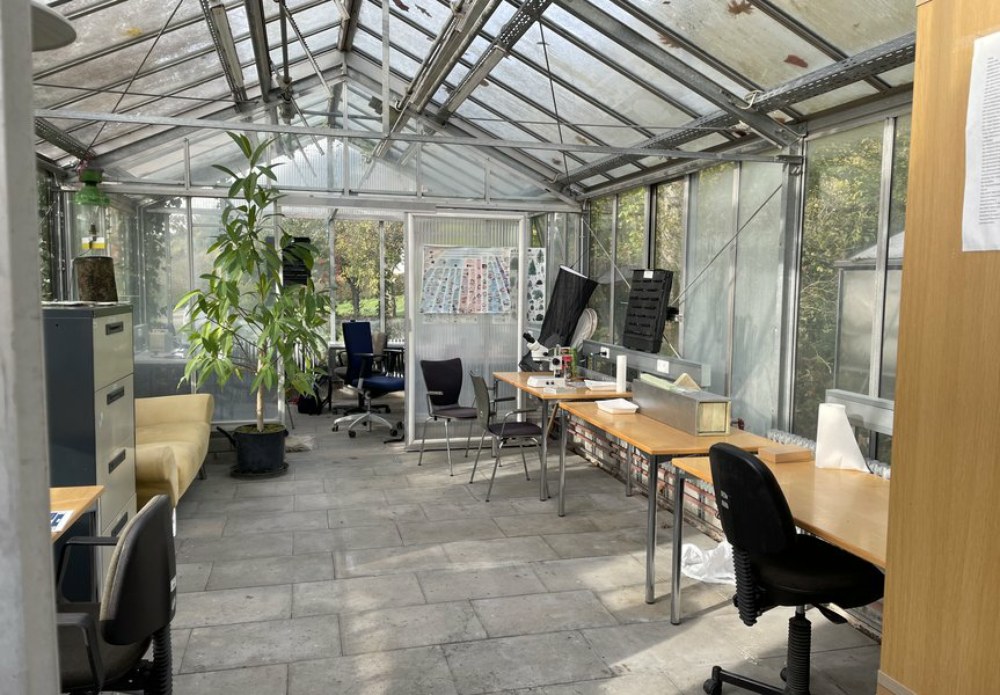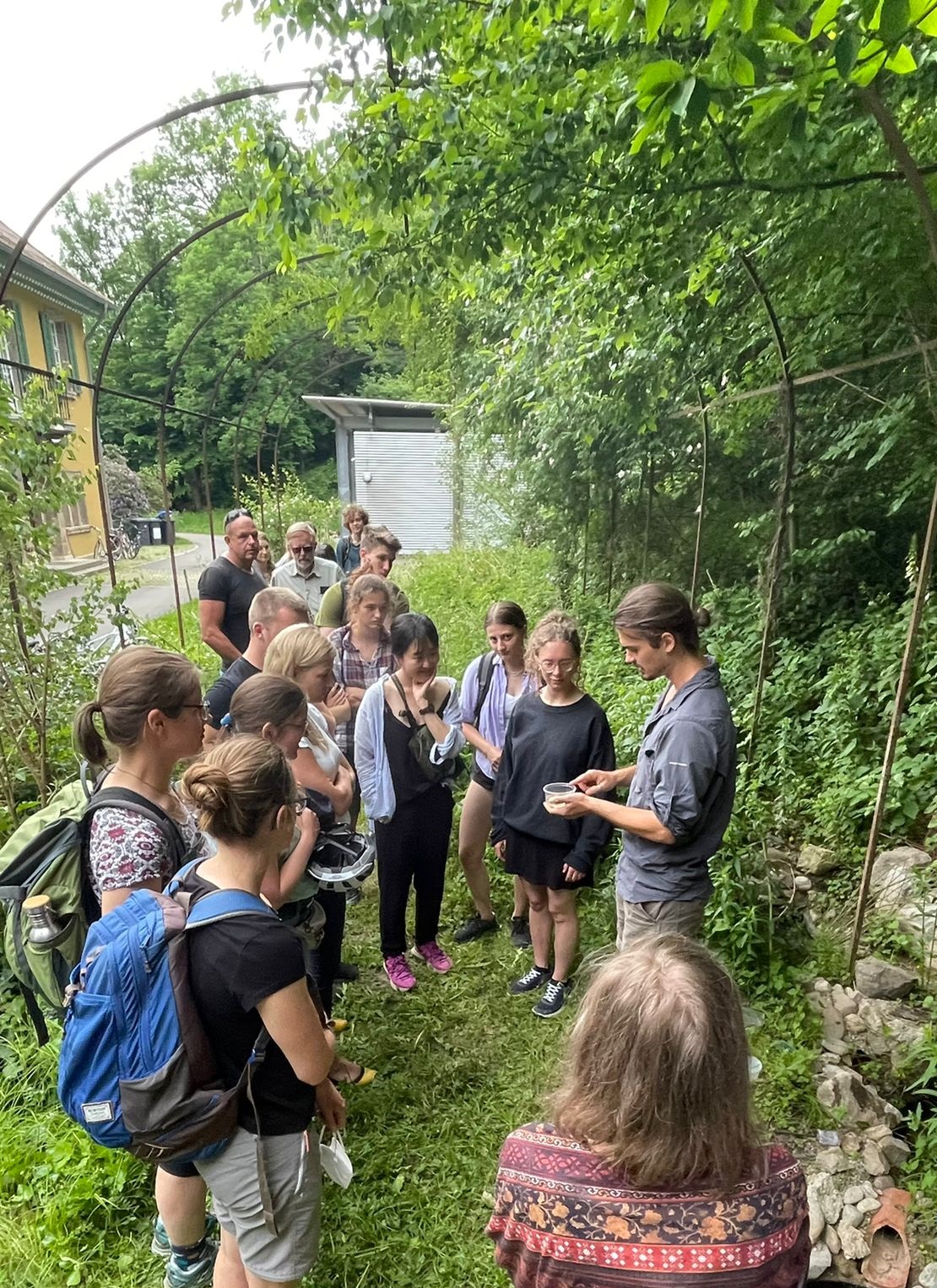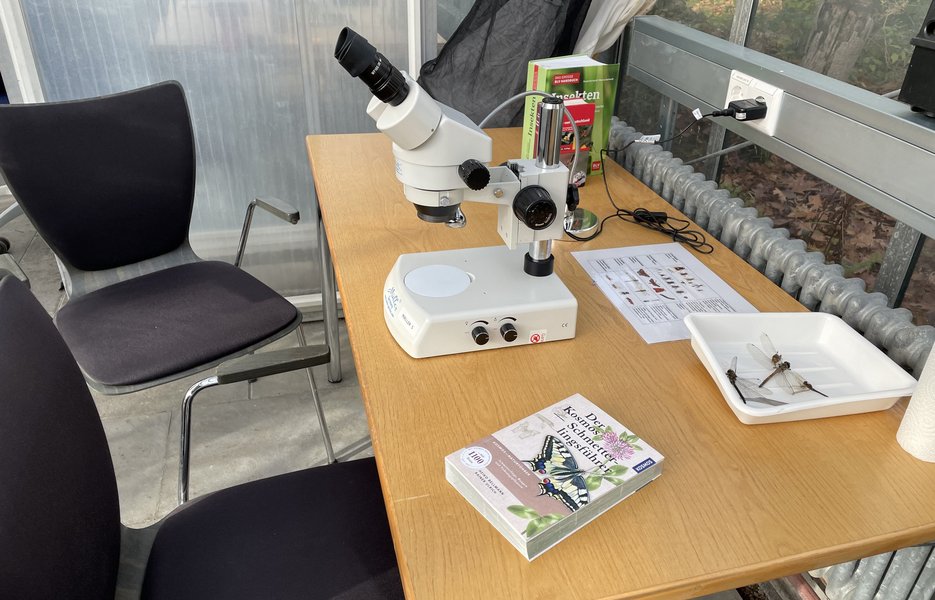Transforming the source
Spring waters are characterized by a low water temperature and a high oxygen content. Many aquatic organisms are dependent on these conditions and suffer from fluctuating water temperatures. Prolonged periods of drought and increased temperatures – the consequences of climate change – pose challenges for these habitats. Some inhabitants, such as numerous insect larvae, survive short-term fluctuations in the water level by retreating into the water-saturated mud. Others, such as fire salamander larvae, find this more difficult. After the female has carried the embryos for around eight to nine months, she releases the larvae in suitable places on the bank. This mainly happens in spring, but sometimes also before winter. The gill-breathing larvae need two to three months for their metamorphosis. If the spring dries out within this period, most of them die. In addition, the development period until the adult animal is dependent on the water temperature. If this rises, they can develop more quickly. However, this is usually accompanied by losses in later terrestrial life. The larvae are then usually smaller, weaker and less resistant to environmental influences. In addition, clear and clean water is essential for their gill respiration.
In order to be able to retain the water for as long as possible during dry periods, retention basins were sunk into the ground. They serve as a refuge in case the spring dries up prematurely. The outlet of the spring was heavily silted up by the soil on the slope and the leaves of the surrounding trees. The slope was terraced to reduce erosion. In addition, the drain was cleared of mud and a stream was dug. The dead wood and stones used for the terracing also serve as hiding places for numerous other animals.
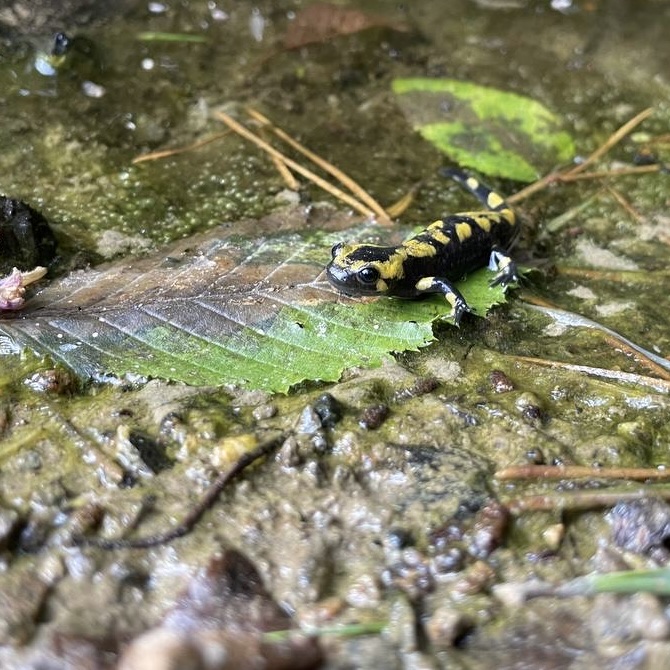
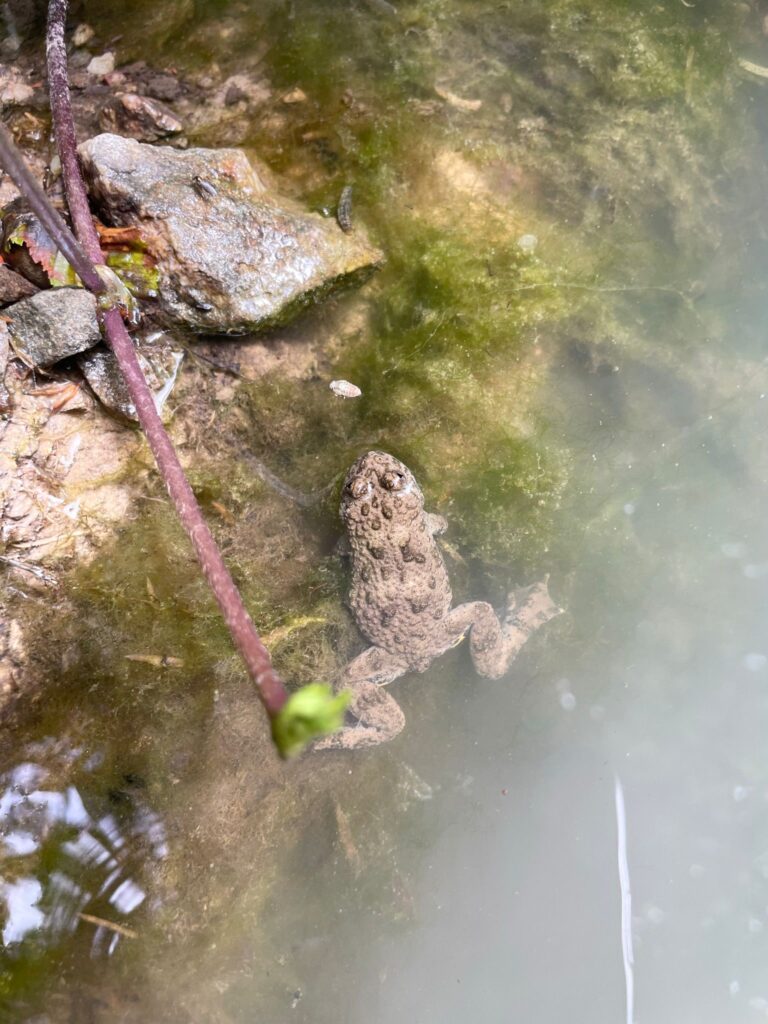
Wild bee nesting mound
Bare ground was a common sight in old cultivated landscapes. Sloping edges, field boundaries, unpaved field paths or dry lean limestone meadows are usually the result of earlier forms of use. Many of the old agricultural practices are no longer economically viable or difficult to establish today. Industrial agriculture on large areas has displaced most of the old forms of use and led to the decline of our cultural landscapes. However, many cultural successors need these anthropogenically influenced landscape elements.
As part of our project to promote biodiversity, we created a pond, among other things. The soil from the pond excavation was used to create a nesting mound for ground-nesting wild bees. The modeling of the nesting mound is intended to enable maximum heat accumulation. The eastern side of the mound is steeply shaped to receive the earliest possible sunlight, while the rear slopes down at a shallow angle to the south-west to absorb heat throughout the day.
Ideally, material from deeper layers of soil should be used for this, as it is free of roots and seeds. As the pond excavation was not completely free of roots and seeds, plants will always sprout here. These must be carefully removed by hand without destroying the nests of the bees that have already settled. To prevent the soil from being washed away and eroded by rain, the nesting aid was embedded with stones. Adjacent to this is a layer of fine sand that is bordered by dead wood. The aim is to create as many niches as possible in order to provide a habitat for as many wild bee species as possible, as well as other species groups.

Pond system
Ponds form indispensable habitats for many creatures that use the still water either all year round or only temporarily. Take the pond newt, for example. The female lays her eggs here by attaching them to aquatic plants or fallen leaves at the bottom of the water. Pockets are folded into the plant leaves with the help of the hind legs and the eggs are literally wrapped up. They then go through various stages of development until they have completed their metamorphosis into land animals as adults after around two to three months.
Natural, small ponds are rarely found in today’s landscape. Many areas have been drained, river deltas with many side arms are few and far between and drier summers are also making such habitats increasingly rare. This makes it all the more important to create artificial habitats to replace them. This pond is only 1.20 meters deep at its deepest point. The various steps were created to create as many shallow water zones as possible, which provide a habitat for various organisms thanks to warmer water temperatures. Frogs and toads prefer these areas for spawning and numerous dragonfly larvae can also be found here.
The area between the greenhouses and the new student laboratory lay fallow for a long time. With the help of a small excavator, the entire area could be excavated in a few hours. The excavator was particularly good at modeling the various depth levels, which saved a lot of physical work. The edges of the bank areas were then subsequently flattened by hand. Once the modeling of the shallow water areas was complete, a fleece was laid out and the pond liner on top. To prevent the liner from slipping under the weight of the water, it was sunk into a so-called capillary trench at the edge and embedded in the soil.
Stones were laid along the edges to prevent the liner from slipping and to give the bottom of the pond structure. Water lilies, water mint, rush grass and much more were then rescued from another pond that was to be abandoned and relocated. The water lilies in particular have grown very quickly and form a dense carpet of shade. The exposed location means that the pond receives a lot of direct sunlight. This allows algae to multiply and spread and can lead to eutrophication of the pond. A dense carpet of water lilies can counteract this and keep the water cooler so that more oxygen can be retained.
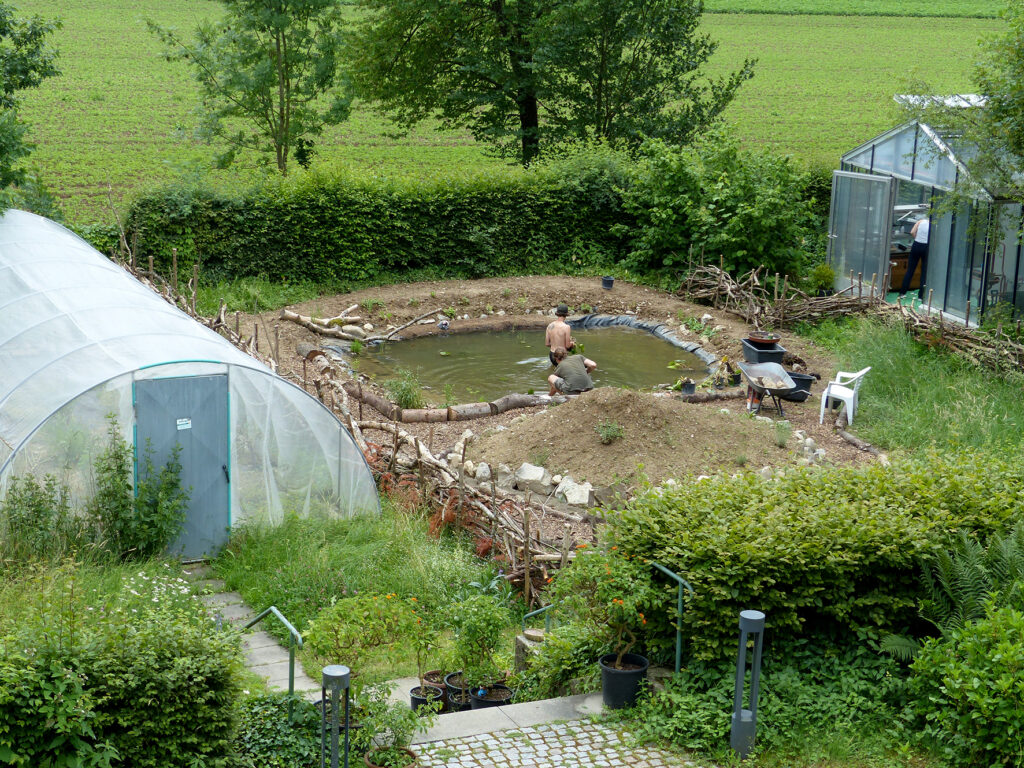
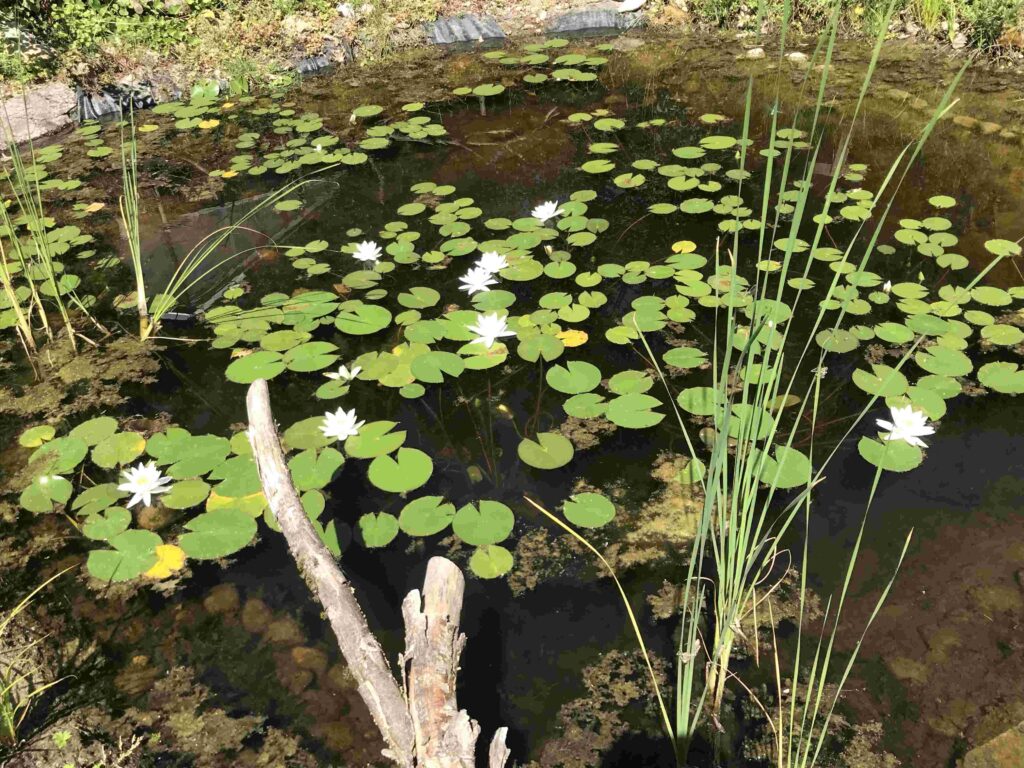
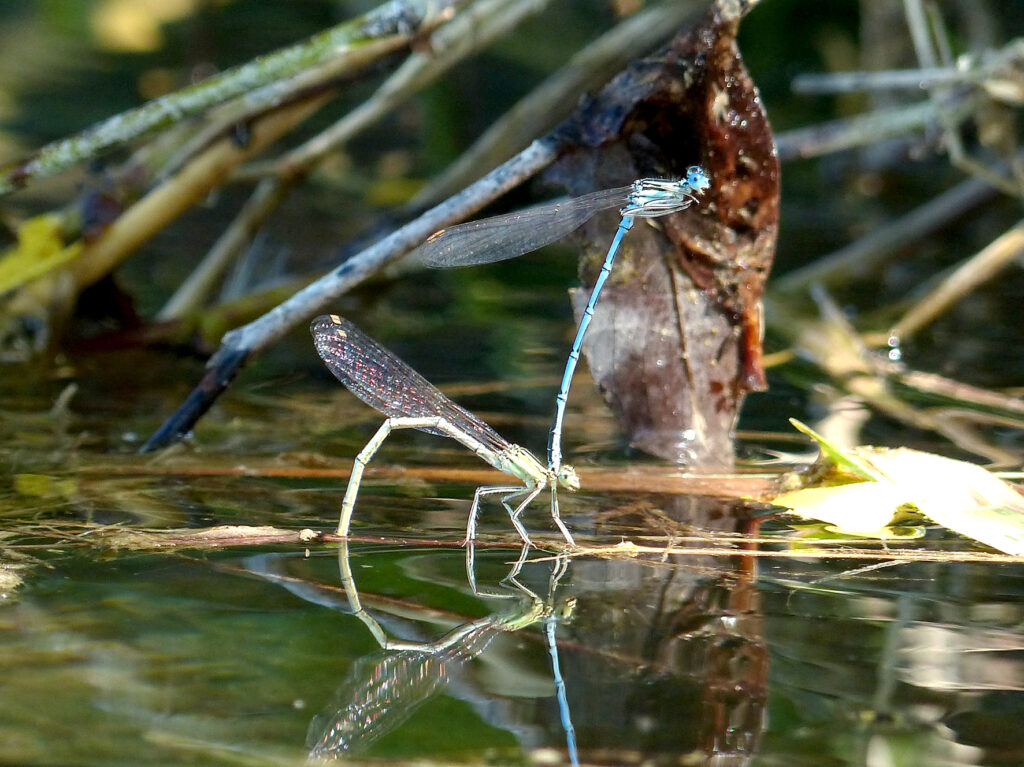
Sandarium
Of the more than 550 species of wild bees native to Germany, 31 are now threatened with extinction according to the Red List, 197 are endangered and 42 species are on the early warning list. 50 % of wild bee species nest underground in soil structures and steep walls. Many important crops depend on wild bees as pollen carriers. And a whole range of other animals, such as some ichneumon wasps and golden wasps, beetles, flies and birds, are specialized on wild bees. The decline in wild bees is mainly due to the loss of nesting sites and food plants. This is because the flight radius also varies depending on body size; narrow bees, for example, only fly a radius of 100 m to 300 m from their nest.
The sandarium was created in a dry and hot location. It is sunny there until late afternoon. The fine sand lens is a mixture of sand and loess. Solitary females dig a tunnel in the ground to build their nest. Depending on the species, this may be a few centimetres to over half a meter long. A brood cell is created at the end of the tunnel. The cell walls are elaborately prepared and impregnated with glandular secretions to protect the offspring from moisture and bacteria. The female then carries pollen and nectar into the brood cell in several collection flights. As soon as the quantity is sufficient, she lays an egg and closes the brood cell. A larva then hatches from the egg and feeds on the food mash. Once it has completely eaten, it pupates and then hatches as a fully developed bee. Some species of forager bees form small colonies, which can even be perennial. Nesting sites for soil nests should therefore always be created for the long term. Wild bees are also dependent on nectar- and pollen-producing forage plants. Mediterranean herbs such as oregano or lavender are suitable for this, as are bellflower species such as Carthusian pink.
